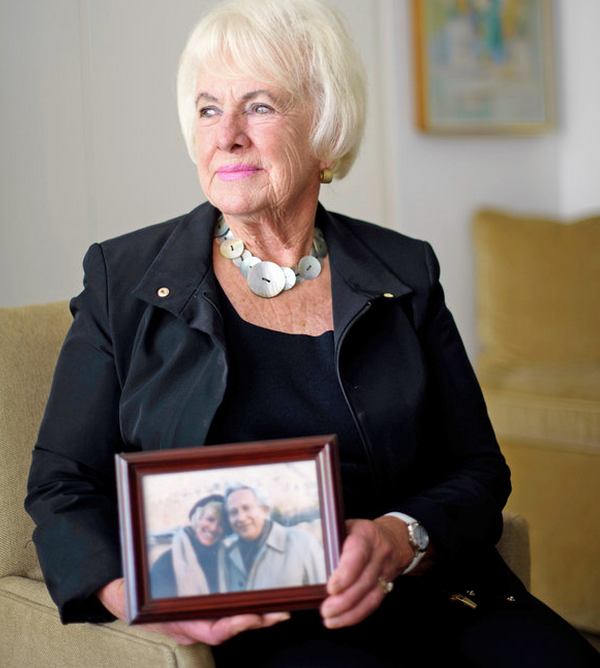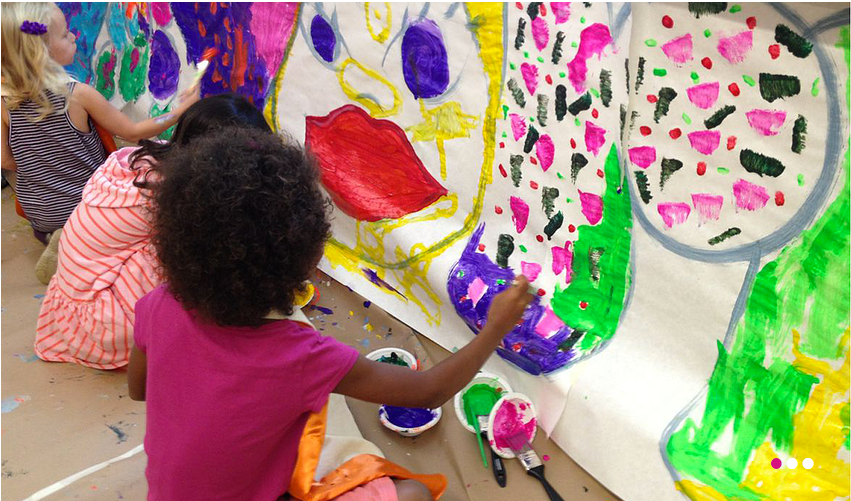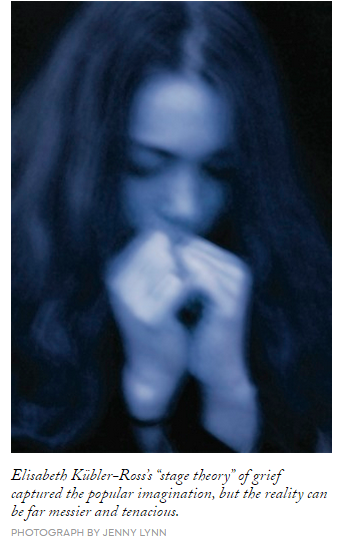"Children's Grief Awareness Day seeks to bring attention to the fact that often support can make all the difference in the life of a grieving child. It provides an opportunity for all of us to raise awareness of the painful impact that the death of a loved one has in the life of a child, an opportunity to make sure that these children receive the support they need".
Moody Cow Meditates: A playful way to introduce children to the power of meditation.
"It all started one stupid, rotten day when everything went wrong…
Peter the cow is having a BAD day. After missing the bus and wiping out on his bike he loses his temper and gets in trouble. To make matters worse all the other kids are teasing him, calling him Moody Cow. Peter’s day just seems to get worse until his grandfather comes over and teaches him how to settle his mind and let go of his frustration through a simple and fun exercise. This vibrant and funny children’s book is a playful way to introduce children to the power of meditation. With full color illustrations by the author, Moody Cow Meditates is a wonderful book for parents and children to share together.
Look for the Moody Cow Mind Jar App for iPhone and iPad, available in the App Store and iTunes!"
Finding the Words: How to talk with children and teens about death.
"It's hard to talk to children and teens about death and dying, particularly when someone they love has died or might die soon. Our instinct as caring adults may be to shelter them from painful truths. Yet as Dr. Wolfelt emphasizes, what kids need most is our honesty and our loving presence.
This practical and compassionate handbook includes dozens of suggested phrases to use with preschoolers, school-agers, and teenagers as you explain death in general or the death of a parent, a sibling, a grandparent, or a pet. Other chapters include possible words and ideas to draw on when you are talking to kids about a death by suicide, homicide, or terminal illness. At times grown-ups must also have very difficult conversations with dying children; this book offers guidance. A final chapter discusses how to talk with kids about funerals, burial, and cremation".
Stop, Breathe, Think. Get Meditating in 5 Minutes. Easy!
Complicated Grief: A Grief So Deep It Won’t Die.
" 'Adapting to loss is as much a part of us as grief itself,' said Dr. Shear, who directs the Center for Complicated Grief at the Columbia University School of Social Work. With complicated grief, 'something gets in the way of that adaptation, Something impedes the course of healing.’
By diagnosing complicated grief just six months after a death, he said, 'you’ll get a lot of normal people receiving treatment they don’t need,' including drugs. Dr. Shear also worries about “pathologizing” normal emotions. But when a woman remains unable to leave her home or answer the phone four years after the death of her adult son, as was true of one patient, something has clearly gone wrong.
‘If you’re worried about what you’re experiencing, if you’re not getting more engaged in life and people around you are saying, ‘Honey, stop wallowing in it,’ why not get some help?' Dr. Shear said. Complicated grief therapy, developed by her center, showed greater effectiveness among older adults than interpersonal psychotherapy in a clinical trial".
Words of Comfort for Someone Suffering the Loss of a Loved One.
"One of those mornings in particular, I awoke with a hauntingly beautiful piece written by Adam Lee in my mind. At the end of Lee’s essay are two exquisite paragraphs that had been used at a memorial service I attended. I have never forgotten those ever-so-comforting last two paragraphs in Lee’s essay, and when I awoke remembering them, had the distinct feeling that at that very moment there was someone who had lost someone they loved, and who was suffering, and who needed to hear those most incredible, peace-giving words".
The Art of Healing.
"As the parents of Lulu and Leo, we know that art and nature played a critical role in their short, beautiful lives and in the life of our surviving daughter, Nessie. We believe every child on the planet deserves the deep engagement with art, nature, and creativity that our children had, not simply for the sheer joy and excitement it brings children but for the powerful tool it can be. We have felt the critical importance of creativity as a healing force and want to ensure that these creative outlets are available to all children and communities facing adversity.
We created the Lulu & Leo Fund to inspire, engage, educate, heal and grow the hearts and minds of children facing hardships, giving them lifelong passion, skills and — most importantly — hope".
Grief Through a Child's Eyes.
Click on the above image to watch "Grief through a Child's Eyes" an original video that takes you inside a children's bereavement camp.
Trauma Workers Find Solace In A Pause That Honors Life After A Death.
"Jonathan Bartels is a nurse working in emergency care. He says witnessing death over and over again takes a toll on trauma workers — they can become numb or burned out. So the next time we worked on another person who didn't make it, I decided to be bold and stop people from leaving," he says. "I just said, 'Can we stop just for a moment, to recognize this person in the bed? You know, this person before they came in here was alive — they were interacting with family, they were loved by others, they had a life.' "
The team did it. Standing together silently, they stopped — just for a minute.
"When it was done, I said, 'Thank you all, and thank you for the efforts that we did to try and save them.' People walked out of the room, and they thanked me," Bartels says.
What's come to be called The Pause is now being taught as part of the curriculum at the university's nursing school. Emergency medical technician Jack Berner says it helps him handle the toughest cases. ‘It makes it so we can actually view the person as a person, rather than as a patient that we see on an everyday basis,’ he says. ‘You can relate more to the case, [knowing] it's somebody's father or their mother, their sister or their uncle, rather than somebody you just see for five minutes’."
Dying 6-year-old leaves thank-you note for parents.
"Amber Shoemake and her husband Tim came home from the hospital to pick out burial clothes for their 6-year-old son.
That’s when the grieving parents found a handwritten note from Leland on the living room table – and immediately burst into tears.
“We were shocked. We broke down and cried for a long time. We have no idea when he wrote it,” Shoemake told the Star in messages sent on Facebook.
“Still with you. Thank you mom + dad. Love,” read Leland’s note, written in red marker and shared by the family on Facebook. He also coloured in a red heart with the words “Mom dad Love” written inside. The note’s last line appears to read “Good bye,” but Shoemake said she believed her son wrote “Good day.”
'I cried hysterically. He was so awesome in life and this family revolved around him and here he was still caring for us even after he’s gone,' said Shoemake"
What You Say To Someone Who’s Grieving Vs. What They Hear.
Miracles Don’t Come Cheap.
"As I rushed through the hospital lobby on my way to the intensive care unit, I saw the palliative care team speaking to a young woman in a wheelchair. She was beautiful, her cheeks full and round, her mouth in a constant soft smile as she spoke. She sat regally in her chair, the red of her sweatshirt anchoring my eyes in the dim hospital lobby. She was such a vision of beauty and health that it took me a second to realize that her right leg was amputated below the knee.
As the treating doctor for this critically ill patient, I had been sure she would die. And I was wrong. Her very presence in the lobby felt like a reprimand".
Navigating Grief and Loss as an Autistic Adult.
"The deaths I have experienced have mostly been at an arm’s length, due to family tensions, geographical separation, or a combination thereof. Until recently, I’d only ever been to one viewing — a member of my stepmother’s family whom I barely knew.
As a result, I have no blueprint for the what to expect in the social situations that have come with an event like this. I have been forced to guess my way through, at a time when my typical abilities are compromised by the emotional overload brought about by loss and grief. How well have I done? I honestly do not know. I don’t know what standard I’m being held to, and by whom. I have had to simply do my best, but I have been haunted by my struggle to know exactly what I need to do to be a good friend to someone who is no longer here to tell me what she expects".
Memoirs of a Griever.
"In writing this I have struggled to find a structure for the narrative to follow; grief has no structure, and it cannot be read. It is as C.S. Lewis cites in A Grief Observed:
“In grief nothing ‘stays put.’ One keeps on emerging from a phase, but it always recurs. Round and round. Everything repeats. Am I going in circles, or dare I hope I am on a spiral? But if a spiral, am I going up or down it?”
Henceforth, this piece will be structured by feeling. If it feels disorienting as you read, that’s because loss is disorienting. If it feels confusing, that’s because loss is confusing. If it feels uncomfortable, that’s because loss is uncomfortable. But, as I have found, and as I am finding on my best days, if I can sit with the disorientation, confusion, and discomfort of loss long enough, it can lead me to a greater appreciation of life and that the spiral C.S. Lewis describes can indeed bend towards the sun.
So let’s give it a red-hot go".
Everything Doesn't Happen For A Reason.
"I emerge from this conversation dumbfounded. I've seen this a million times before, but it still gets me every time.
I’m listening to a man tell a story. A woman he knows was in a devastating car accident; her life shattered in an instant. She now lives in a state of near-permanent pain; a paraplegic; many of her hopes stolen. He tells of how she had been a mess before the accident, but that the tragedy had engendered positive changes in her life. That she was, as a result of this devastation, living a wonderful life.
And then he utters the words. The words that are responsible for nothing less than emotional, spiritual and psychological violence:
Everything happens for a reason. That this was something that had to happen in order for her to grow.
Grief is brutally painful. Grief does not only occur when someone dies. When relationships fall apart, you grieve. When opportunities are shattered, you grieve. When dreams die, you grieve. When illnesses wreck you, you grieve.
So I’m going to repeat a few words I’ve uttered countless times; words so powerful and honest they tear at the hubris of every jackass who participates in the debasing of the grieving:
Some things in life cannot be fixed. They can only be carried".
Advice: What to say – and not say – to a friend who is recently bereaved.
"WE’VE ALL BEEN in a situation where we wanted to say something supportive to a person who has recently been bereaved.
Many of us will have also avoided a bereaved person out of fear: Either not knowing what to say or worrying about putting our foot in it by saying the wrong thing.
There are many aspects of grief and bereavement that people feel uncomfortable with and shy away from. But we don’t have to run away from someone who has just lost a loved one – we’re actually quite good at coming up with the right words. And, sometimes, the worst thing to do is saying nothing at all".
Good Grief: Is there a better way to be bereaved?
"It has become a truism of the hospice movement that people resist death if they have something left they need to say. After the documentary, Kübler-Ross emerged from her anomie to revisit what she had written about grief. Realizing that the stage theory had grown into a restrictive prescription for grief, she collaborated with David Kessler, a hospice expert, to write “On Grief and Grieving.” Near the end of a chapter about her own grief—which arrived late in life, following the death of her ex-husband—she noted, “I now know that the purpose of my life is more than these stages. I have been married, had kids, then grandkids, written books, and traveled. I have loved and lost, and I am so much more than five stages. And so are you.”
The Heart and the Bottle: A Tender Illustrated Fable of What Happens When We Deny Our Difficult Emotions.
"Jeffers tells the story of a little girl, “much like any other,” whose expansive and exuberant curiosity her father fuels by reading to her all sorts of fascinating books about the sea and the stars and the wonders of our world.
We witness the duo’s blissful explorations until, one day, we realize that the father is gone — the little girl finds herself facing the empty chair.
With exquisite subtlety and economy of words, Jeffers — whose mastery of the interplay between darkness and light extends as much to the paintbrush as it does to the psyche — silently uncorks the outpour of hollowing emotions engendered by loss".

















